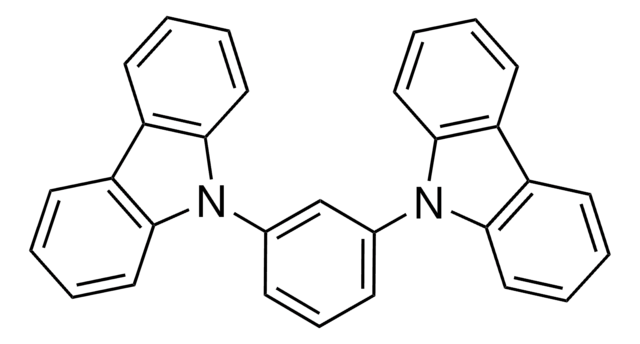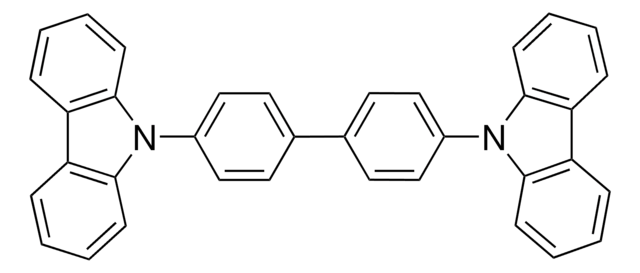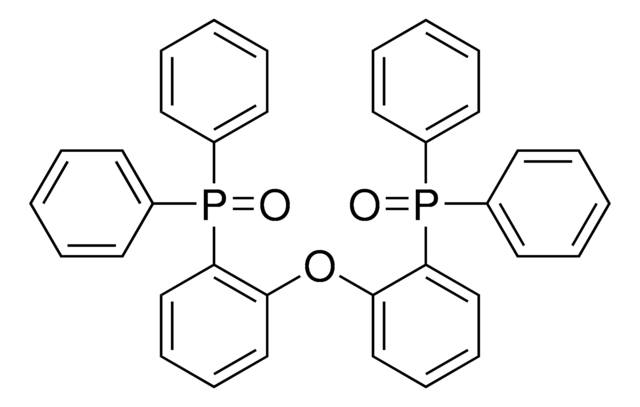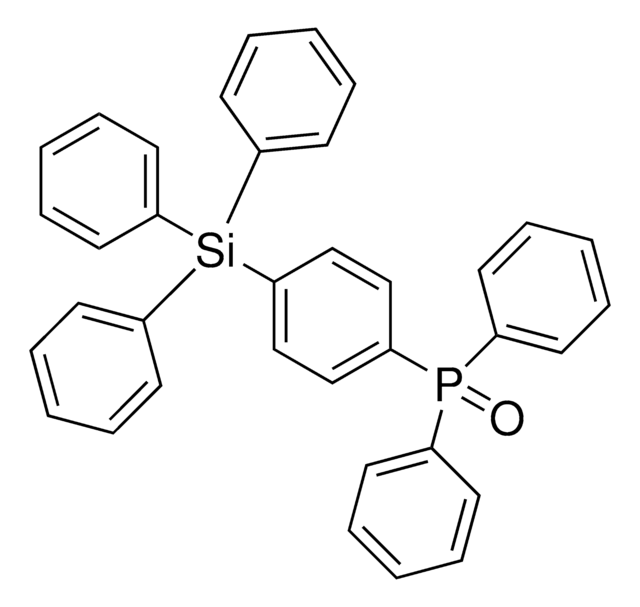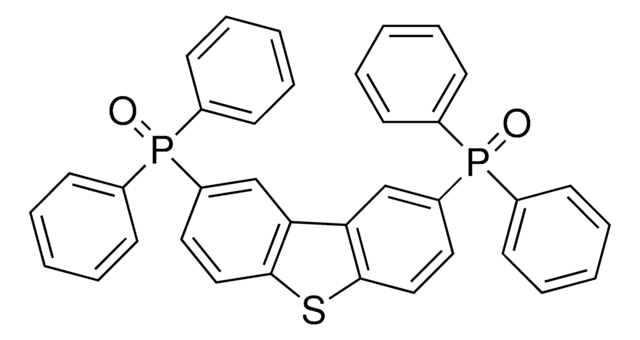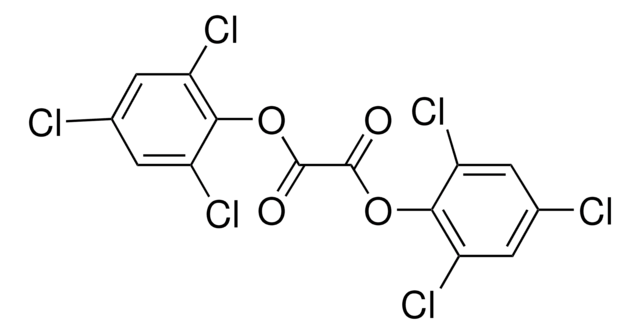660124
4,4′-Bis(N-carbazolyl)-1,1′-biphenyl
97%
Synonym(s):
4,4′-Bis(9-carbazolyl)-1,1′-biphenyl, 4,4-N,N′-Dicarbazole-1,1′-biphenyl, CBP, DCBP
About This Item
Recommended Products
Assay
97%
form
solid
greener alternative product characteristics
Design for Energy Efficiency
Learn more about the Principles of Green Chemistry.
sustainability
Greener Alternative Product
mp
281-285 °C
Orbital energy
HOMO 6 eV
LUMO 2.9 eV
OLED Device Performance
ITO/HMPD/CBP:Ir(ppy)3 (6%)/Alq3/Mg:Ag
ITO/MoO3/CBP/CBP:Ir(ppy)2(acac) (6%)/TPBI/LiF/Al
ITO/NPD/CBP:Ir(ppy)3 (6%)/Alq3/Mg:Ag
ITO/NPD/CBP:Ir(ppy)3 (6%)/niBr/Alq3/Mg:Ag
ITO/NPD/CBP:Ir(ppy)3/BCP/Alq3/Mg:Al
ITO/PEDOT:PSS/NPD/CBP:Ir(piq)3 (6 wt%)/Alq3/LiF/Al
ITO/TAPC/CBP:FIrpic (6%)/PO14/LiF/Al
greener alternative category
SMILES string
c1ccc2c(c1)n(-c3ccc(cc3)-c4ccc(cc4)-n5c6ccccc6c7ccccc57)c8ccccc28
InChI
1S/C36H24N2/c1-5-13-33-29(9-1)30-10-2-6-14-34(30)37(33)27-21-17-25(18-22-27)26-19-23-28(24-20-26)38-35-15-7-3-11-31(35)32-12-4-8-16-36(32)38/h1-24H
InChI key
VFUDMQLBKNMONU-UHFFFAOYSA-N
Looking for similar products? Visit Product Comparison Guide
General description
Application
Signal Word
Danger
Hazard Statements
Precautionary Statements
Hazard Classifications
Eye Dam. 1 - Skin Irrit. 2 - STOT SE 3
Target Organs
Respiratory system
Storage Class Code
11 - Combustible Solids
WGK
WGK 3
Flash Point(F)
Not applicable
Flash Point(C)
Not applicable
Personal Protective Equipment
Certificates of Analysis (COA)
Search for Certificates of Analysis (COA) by entering the products Lot/Batch Number. Lot and Batch Numbers can be found on a product’s label following the words ‘Lot’ or ‘Batch’.
Already Own This Product?
Find documentation for the products that you have recently purchased in the Document Library.
Articles
Organic Semiconductor Laser Materials
Materials Design Concepts for Efficient Blue OLEDs: A Joint Theoretical and Experimental Study
Our team of scientists has experience in all areas of research including Life Science, Material Science, Chemical Synthesis, Chromatography, Analytical and many others.
Contact Technical Service